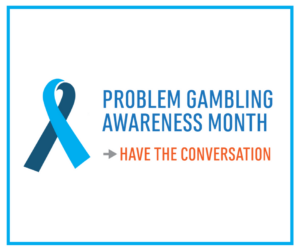Alcohol and substance use disorder are what most people think of when they hear the word “addiction,” and for a good reason—left untreated, they are deadly mental health conditions. The national conversation about addiction, these days, almost always leads to opioids and the ever-growing number of overdose deaths in the U.S. While it is vital that we keep our focus on finding solutions to the American opioid addiction epidemic, it’s paramount we do not lose sight of the big picture. There are a plethora of mental health conditions plaguing Americans; even if individual disorders do not carry the risk of overdose, they can indirectly contribute to premature death; people living with untreated mental illness stand to lose everything if they don’t get help. Such is the case for problem gambling, otherwise known as compulsive gambling.
At PACE, we understand that the complexities of non-substance-related addiction, i.e., eating disorders, sex, shopping, and gambling. Arguably, disorders not involving drugs and alcohol can persist unnoticed far longer than substance abuse disorders. Despite being manifestations of psychological turmoil, it’s difficult for doctors to screen patients for conditions like problem gambling. When a person sees a physician complaining of back pain, it’s unlikely that the caregiver will inquire about how the chips are falling these days. However, primary care doctors can play a role in helping some of the over ten million pathological gamblers in America.
Problem Gambling Signs and Symptoms
People might contend that it’s not a doctor’s place to ask about behaviors that, on the surface, do not bring about physical harm. One could argue that patients have the right to spend their hard-earned cash any way they like, whether it be shopping or at a craps table in a smoke-filled casino. Nevertheless, while non-substance addictive behaviors appear relatively harmless, they most certainly have the power to disrupt and destroy peoples’ lives.
Any practice that persists despite negatively impacting one’s life is concerning. Your average adult can go to a casino for a few hours—win a little or lose a little—and then go home thinking little of their experience ever again. Others may occasionally buy a scratch ticket or Powerball ticket, fully expecting that they just wasted some money for the fun of it; in both examples, such individuals have no illusions about hitting the jackpot. Unfortunately, for many Americans, casinos and the Lotto are not some frivolous activity. What’s more, the costs of gambling can significantly exceed what is lost at the card table.
As with any behavior, the line between casual and problematic is exceedingly thin. People failing to recognize that they have a problem is not uncommon. There are a number of symptoms that could indicate that a problem exists, according to the Mayo Clinic, including but not limited to:
- Lying to family and friends about your gambling.
- Attempting to stop gambling without success.
- Gambling as a method of escape from life problems or to relieve troubling feelings.
- Gambling to raise money to pay off gambling debts.
- Losing jobs, relationships, and opportunities because of the behavior.
Anyone can see, the above symptoms are quite similar to the behaviors of your typical substance user.
Problem Gambling Awareness Month 2018
Some of you may be aware that March is Problem Gambling Awareness Month (PGAM), an observance led by the National Council on Problem Gambling (NCPG). Now in its 14th year, the organization wants to steer the national conversation towards problem gambling screening. This year’s theme, “Have the Conversation,” is meant to encourage healthcare providers to screen patients for this concerning mental health disorder.
As with any national observance devoted to raising awareness, events are being held over the month of March to discuss prevention methods and get the word out that treatment and recovery works. The organization has created a toolkit to help doctors identify signs of problem gambling and assist them in talking to patients about their options.
If you are unable to attend an event this month, you can still take part in the campaign to raise awareness. NCPG has created graphics that you can share on your social media accounts.
Problem Gambling Treatment and Recovery
If you or a loved one’s life has become unmanageable due to any type of gambling, please contact PACE Recovery Center for a free consultation. Unchecked problem gambling will continue to complicate your life, the sooner you seek help, the better. We specialize in assisting clients to get to the root of their addictions or behavioral health disorders and provide them with the tools to lead a fulfilling and productive life in recovery.



